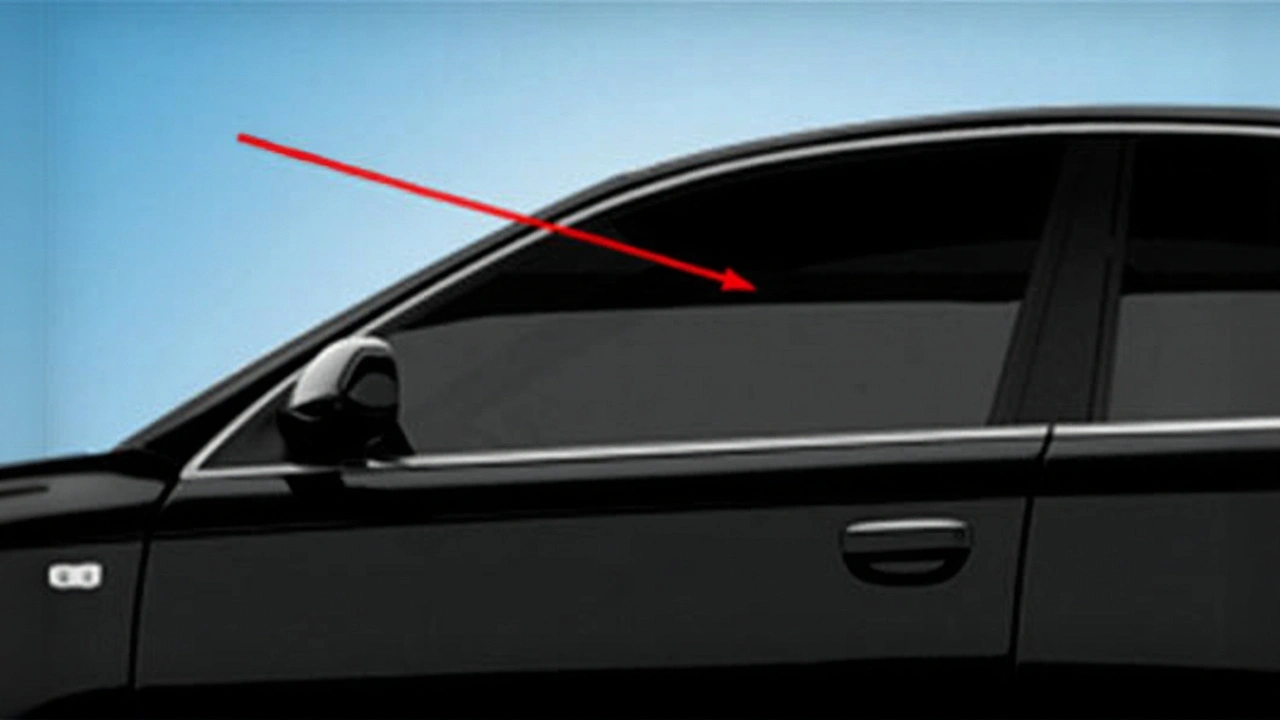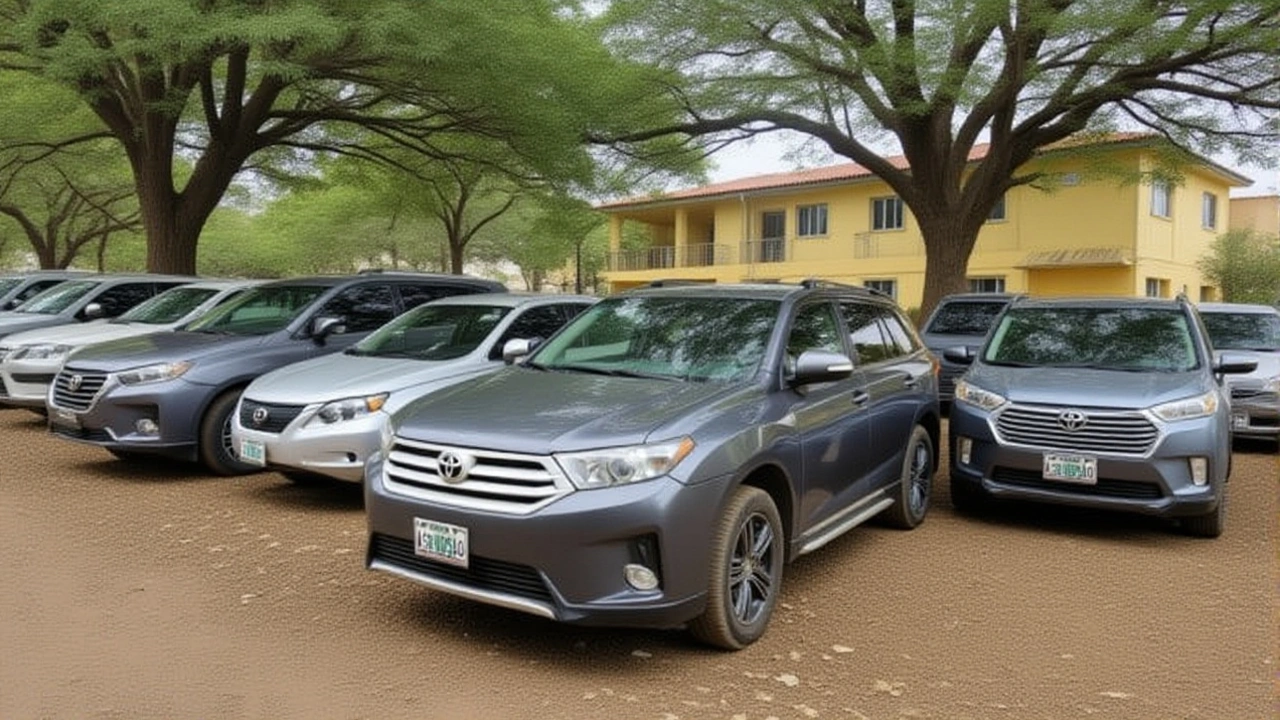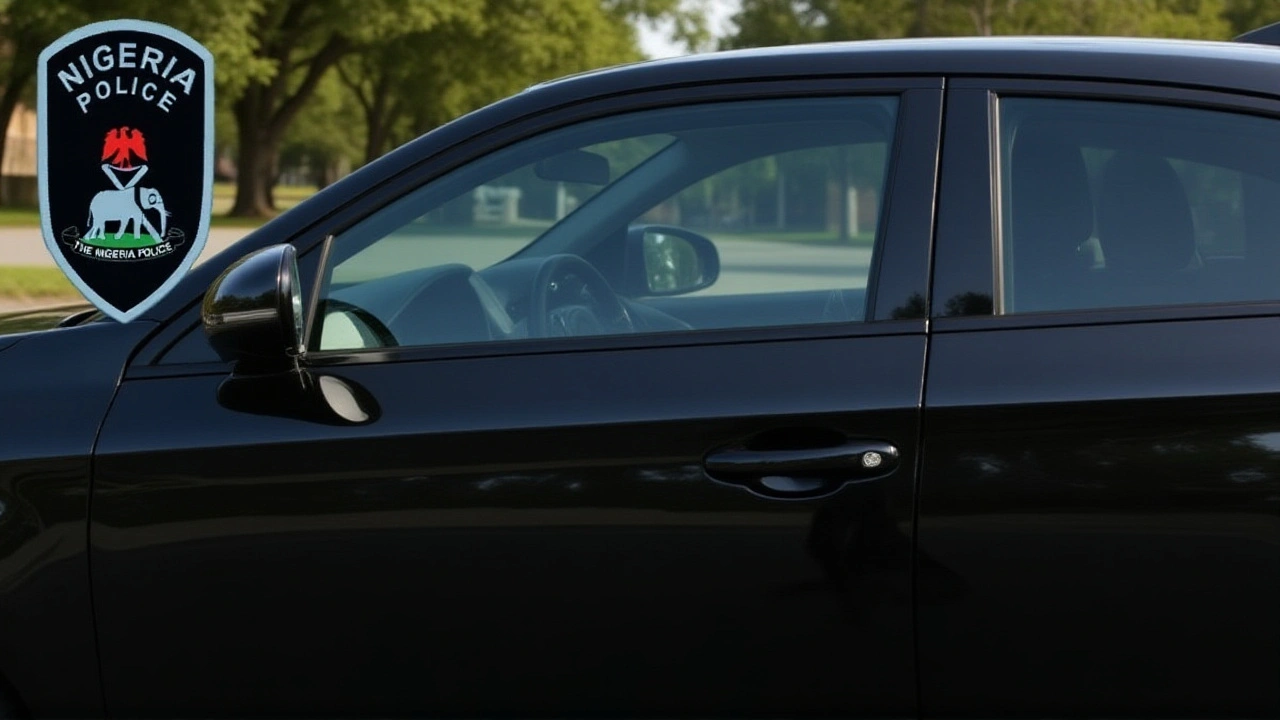Court Halts Tinted Glass Permit Drive; Force Says No Order Served

When Federal High Court convened in Warri, John Aikpokpo‑Martins walked in with a legal brief that would put the spotlight on the tinted glass permit controversy gripping the nation. The judge’s ruling on October 3, 2025, told the Nigeria Police Force and its head, Inspector‑General Kayode Egbetokun, to freeze all enforcement activity until the case is fully resolved. The order, filed under case No. FHC/WR/CS/103/2025, aims to preserve the status quo while the courts weigh the policy’s legality.
Background of the Tinted Glass Permit Policy
Back in April 2025, the Inspector‑General announced a new requirement: every vehicle owner must secure an annual permit to use tinted windows. Applicants were instructed to use the digital portal possap.gov.ng, pay a fee, and display the permit in their cars. The motive, according to the police, was to curb criminals who hide behind dark glass during robberies, kidnappings, and other violent acts. The deadline was pushed twice—from an original August cut‑off to October 2, 2025—citing the 1991 Motor Vehicles Act as the legal backbone.
Supporters argue that the measure could help law‑enforcement identify suspects more quickly, especially in regions plagued by kidnapping gangs. Critics, however, see it as a revenue‑generating scheme that targets ordinary motorists, many of whom struggle with the online application’s glitches and the extra cost.
Court Ruling and Immediate Reactions
Senior Advocate of Nigeria Kunle Edun, who led the legal team for Aikpokpo‑Martins, called the judgment “a vital reinforcement of the rule of law.” He warned that any police action contrary to the order would be contempt of court. Yet the next day, Force Public Relations Officer CSP Benjamin Hundan told reporters the police had not yet been served with the injunction, insisting that operations would continue until formal service was confirmed.
The discrepancy sparked a flurry of social‑media posts, with many motorists posting videos of checkpoints still stopping cars for permits. Legal analysts note that the failure to serve the order, if true, could give the police a procedural shield, at least temporarily.
Police Enforcement Across States
Despite the court’s directive, enforcement rolled out in several states. In Niger State, Commissioner of Police Adamu Elleman personally oversaw a sweep in Minna on Thursday, directing officers to check tinted windows and request permits. Elleman emphasized that “the drive is about security, not punishment,” and warned that ignorance would not excuse non‑compliance.
Meanwhile, Lagos State Police Command launched its own series of checkpoints, pulling over dozens of vehicles in bustling districts like Victoria Island and Ikoyi. In Delta and Jigawa states, police seized 45 vehicles, including the car of a judicial officer, raising eyebrows about the impartiality of enforcement when the case is still pending.
Human‑rights observers reported that some motorists were asked to pay additional “processing fees” at the checkpoint, which they claim amounts to extortion. Others said they were threatened with arrest for driving without the permit, even though the court had ordered a freeze.

Legal Challenges and Civil Society Response
The Nigerian Bar Association’s Section on Public Interest and Development Law (NBA‑SPIDEL) filed a separate suit—FHC/ABJ/CS/1821/2025—against the Inspector‑General, arguing that the policy breaches constitutional rights to freedom of movement and equal protection. The bar’s head, Justice Kemi Adebayo, accused the police of “reckless disregard for the judiciary” and urged the court to declare the permit requirement void.
Rights groups such as the Civil Liberties Centre (CLC) and the International Federation for Human Rights (FIDH) have released statements calling the policy “unconstitutional and discriminatory.” They point to the 1999 Constitution, which guarantees that any restriction on personal liberty must be reasonable, necessary, and proportionate—criteria they argue the tinted‑glass rule fails to meet.
On the other side, a coalition of victims of recent kidnappings—led by community leader Chidi Okeke in Anambra—publicly supported the police, saying that the permits could deter criminals who rely on anonymity.
Implications for Security and Civil Liberties
If the courts ultimately uphold the permit scheme, Nigeria could be setting a precedent for technology‑driven surveillance measures that blend security with revenue collection. Critics warn that such tools could be expanded to other vehicle modifications, perhaps even to tracking GPS data for commercial trucks.
Conversely, striking down the policy would reinforce judicial oversight over executive actions—a win for civil‑society activism and an affirmation that the rule of law can curb overreach, even in the face of rising insecurity.
Economically, the permit fees—estimated at ₦12,000 per year—could amount to over ₦1.2 billion in annual revenue if fully complied with, according to a market analyst at PWC Nigeria. That figure, however, is dwarfed by the cost of insecurity, which the World Bank estimates at roughly ₦5 billion annually in lost productivity.

Looking Ahead: Possible Outcomes
The next hearing is slated for November 15, 2025, where both sides will present detailed arguments on constitutionality, procedural fairness, and public safety. If the judge lifts the injunction, enforcement could resume with a clearer legal footing, possibly accompanied by revised guidelines to address the complaints raised by motorists.
Should the court dismiss the permit altogether, the police will need to devise alternative strategies—perhaps focusing more on intelligence‑led operations rather than blanket vehicle checks. Either scenario will shape the broader debate on how Nigeria balances security imperatives with individual rights in a digital age.
Frequently Asked Questions
What exactly does the tinted glass permit require?
Vehicle owners must apply online at possap.gov.ng, pay a fee of about ₦12,000, and display the permit inside the car. The permit is valid for one year and must be renewed before the October 2 deadline.
Why did the Federal High Court order a halt to enforcement?
The court found that the policy’s legality was still under dispute and that continuing enforcement could prejudice the pending case. It also warned that ignoring the order would constitute contempt of court.
Which groups have challenged the permit in court?
Besides the individual plaintiff John Aikpokpo‑Martins, the Nigerian Bar Association’s Section on Public Interest and Development Law (NBA‑SPIDEL) filed a separate suit, arguing the permit breaches constitutional rights.
How are motorists reacting on the ground?
Many drivers report being stopped at checkpoints, forced to pay extra fees, or having their cars impounded. Some express fear of extortion, while a minority say the permits could deter kidnappers.
What are the next legal steps?
A further hearing is scheduled for November 15, 2025, where both the police and the challengers will present detailed constitutional arguments. The ruling then will determine whether the permit scheme stays, is modified, or is struck down.

Kristen VanPamel
October 6, 2025 AT 03:56The tinted glass decree is merely a mirror reflecting the state’s anxiety about control rather than a genuine security solution.
Giacinta Pace
October 8, 2025 AT 13:16Hey folks, let’s keep our heads up – if the police can’t find a fair way to do this, maybe we can all help each other share tips and stay safe while the court decides.
darryl archer
October 10, 2025 AT 22:36It is evident that the policy, as presently drafted, flagrantly disregards constitutional safeguards and therefore definitly requires judicial scrutiny before any enforcement may proceed.
Dina DiCicco
October 13, 2025 AT 07:56Exactly - the law cannot be twisted to line‑pocket the government 💰 and we must call it out before it becomes a precedent.
Kasey DellaPenna
October 15, 2025 AT 17:16Yo everyone let’s rally around those drivers feeling the squeeze the fee is a load and the portal glitches are killing the vibe we can push for a better system together
Gayleen Lowrie
October 18, 2025 AT 02:36Look, the core idea of visibility is solid but the execution feels like a nightmare the online form crashes and the extra fees feel extortionate we need a smoother process that actually helps security
Wesley Nakamatsu
October 20, 2025 AT 11:56While enthusiasm is welcome, we must remember the primary duty of the State is to protect its citizens and the tinted‑glass initiative, if refined, could be a vital tool in that mission
Tyler Tucker
October 22, 2025 AT 21:16This whole thing is just a cash grab.
julia mutambara
October 25, 2025 AT 06:36I have been following the tinted glass controversy since the first announcement in April and I must say the saga has unfolded like a courtroom drama crossed with a bureaucratic nightmare. The government’s claim that dark windows hide criminals is not without merit, yet the blanket requirement ignores the nuanced reality of everyday commuters. When the police announced the permit fee of roughly twelve thousand naira, many motorists reported that the online portal simply timed out after multiple attempts. Moreover, the additional processing fees allegedly demanded at checkpoints have been labeled by human‑rights groups as outright extortion. The Federal High Court’s injunction was a necessary pause, reminding both the executive and the law‑enforcement agencies that due process cannot be sidestepped. What worries me most is the precedent that such a financial barrier could set for future security measures across the country. If today the state can demand payment for a simple piece of glass, tomorrow it could demand a subscription for any form of surveillance technology. On the other hand, the victims of recent kidnappings have voiced genuine support for any steps that might deter criminals from using darkness as a shield. That sentiment should not be dismissed, but it must be balanced against constitutional guarantees of freedom of movement and equal protection. The Nigerian Bar Association’s challenge highlights that the policy may violate the proportionality test enshrined in the 1999 Constitution. Legal scholars argue that any restriction must be necessary, reasonable, and the least intrusive means available. In practice, a more targeted approach-such as focusing on intelligence‑led operations-could achieve security goals without imposing a blanket financial burden. Furthermore, the uneven enforcement across states, with some officials even stopping judges, raises concerns about impartiality. Transparency in how the permits are issued and verified would go a long way toward restoring public trust. Ultimately, the upcoming November hearing will determine whether the court will uphold the injunction or carve out a revised framework. Until then, motorists should stay informed, continue to challenge any overreach, and advocate for solutions that protect both safety and civil liberties.
Nelleke Elston
October 27, 2025 AT 14:56Honestly the whole “security” spiel is a cover for profiteering and anyone who buys into it is either clueless or complicit.
Jocelyn Garcia
October 30, 2025 AT 00:16Let’s keep the conversation focused on facts – the portal issues are real and the fee is steep, so we should push the authorities to fix the system before any further enforcement.
somiya Banerjee
November 1, 2025 AT 09:36Wow the drama! Our brave police are just trying to keep us safe, and critics love to stir the pot, but we must stand behind the men and women protecting our streets.
Rahul Verma
November 3, 2025 AT 18:56They don’t want you to see the cameras behind the tinted glass they are hiding the real surveillance network
Veena Baliga
November 6, 2025 AT 04:16It is imperative that we, as a sovereign nation, support initiatives that strengthen our internal security while ensuring they conform to constitutional standards.
vicky fachrudin
November 8, 2025 AT 13:36From a policy‑analysis perspective, the tinted‑glass permit raises a classic governance dilemma: the trade‑off between collective security and individual liberty; therefore, a nuanced regulatory framework that incorporates stakeholder feedback, transparent fee structures, and robust oversight mechanisms would be the most prudent path forward; additionally, comparative studies of similar measures in other jurisdictions suggest that voluntary compliance schemes, rather than coercive permits, tend to achieve better compliance rates without eroding public trust.
subhashree mohapatra
November 10, 2025 AT 22:56While the expert view sounds polished, the reality on the ground is that citizens are being squeezed for cash and the promised oversight often remains paper‑thin.
Mansi Bansal
November 13, 2025 AT 08:16We should all remember that the goal is safety and maybe a simpler, low‑cost solution could work better for everyone.
ajay kumar
November 15, 2025 AT 17:36Hey guys, just saying let’s keep the vibe chill and push for a fix that doesn’t break the bank.
Chinmay Bhoot
November 18, 2025 AT 02:56The whole episode is a textbook case of state overreach masquerading as public safety and it should be exposed widely.